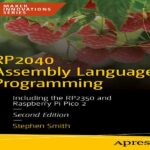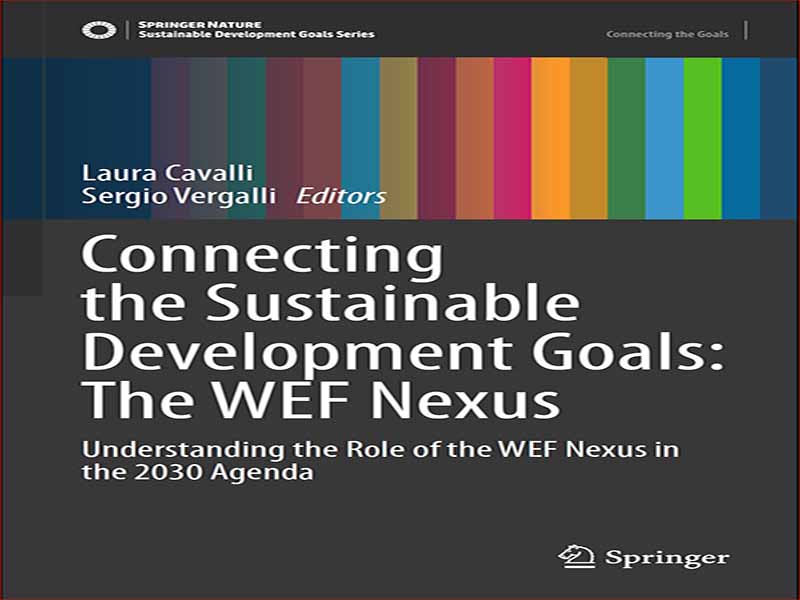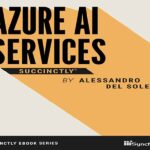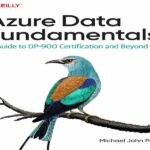- عنوان کتاب: Connecting the Sustainable Development Goals: The WEF Nexus
- نویسنده: Laura Cavalli
- حوزه: توسعه پایدار
- سال انتشار: 2022
- تعداد صفحه: 108
- زبان اصلی: انگلیسی
- نوع فایل: pdf
- حجم فایل: 2.90 مگابایت
اجماع عمومی در مورد لزوم هدایت جامعه ما در مسیری پایدارتر وجود دارد که در آن نیازهای کنونی بدون به خطر انداختن توانایی نسلهای آینده برای انجام همین کار برآورده شود. این امر مستلزم توقف تغییرات اقلیمی، جلوگیری از کاهش منابع تجدیدناپذیر، توقف تخریب اکوسیستمهای طبیعی و تضمین فرصتهای جامع و عادلانه برای توسعه برای همه و همه جا است. برای دستیابی به این هدف پیچیده و چندوجهی، یک گام کلیدی، تصویب دستور کار 2030 برای توسعه پایدار بوده است که انتظار می رود 17 هدف توسعه پایدار (SDGs) و 169 هدف آن، سیاست های توسعه را در این دهه هدایت کنند. در واقع، دستور کار 2030 بلندپروازانه ترین تلاش بین المللی برای ادغام سه بعد پایداری در یک چشم انداز متحد کننده و جهانی برای آینده است (کاوالی و اسپینازولا، 2022). اما در هم تنیدگی این سه بعد مستلزم اجرای SDG ها به روشی یکپارچه است که ممکن است از پیشرفت های اخیر در استفاده از پیوند آب-انرژی-غذا (WEF Nexus) بهره مند شود (Antonelli et al., 2022). این یک نمونه واقعی از ادغام بین رشته ها و زمینه های مختلف است، زیرا تولید و استفاده از آب، انرژی و غذا به طور اجتناب ناپذیری به هم مرتبط هستند و به ویژه در معرض رشد جمعیت، تغییرات آب و هوا و شیوه های توسعه ناپایدار قرار دارند. به طور خاص، مطالعه WEF Nexus شناسایی علل مختلف ناکارآمدی سیستمی را در سراسر تنظیمات و مقیاسهای جغرافیایی، و همچنین در سراسر سیستمهای محیطی، اجتماعی و اقتصادی امکانپذیر میسازد. علاوه بر این، WEF Nexus یک چارچوب مفید برای هدایت تعاملات چندجانبه فراهم می کند، و از رقابت برای منابع WEF در میان کاربران و استفاده های مختلف اجتناب می کند. بنابراین تجزیه و تحلیل فرصتها و چالشهای موجود برای تقویت پیوند WEF از طریق بسیج مشارکتهای چندجانبه، از جمله سازمانهای دولتی، بخش خصوصی، جامعه مدنی و دانشگاه، با تمرکز ویژه بر دستیابی به عملکرد خوب، حامی فقرا و سیستم های غذایی پایدار به عنوان بخشی از دستور کار توسعه پایدار (میرزابایف، فون براون، 2022). علاوه بر این، مشارکت برای تحقیق و نوآوری در منطقه مدیترانه و نقش آن در ترویج رویکرد پیوندی نیز در کتاب توضیح داده شده است (Antonelli et al., 2022). از سوی دیگر، تأثیر کمبود مواد غذایی و کمبود آب بر رفاه، سطح فقر و امید به زندگی مردم نیز همراه با مصرف، سازگاری و استراتژیهای تابآوری پذیرش فناوری در نظر گرفته میشود (فولتز، 2022). علاوه بر این، مطالعه مدلها و رویکردهای روششناختی مختلف میتواند در درک جنبههای مختلف مسئله و تلاش برای شناسایی راهحلهای مختلف مفید باشد. بنابراین، مقایسه روشهای تکمیلی اقتصاد کلان و اقتصاد خرد، مانند تعادل عمومی قابل محاسبه، و تعادل جزئی (Palatnik و همکاران، 2022)، با در نظر گرفتن عدم قطعیت و ریسک (بازانا، و همکاران، 2022) مهم است. در کاربرد مدلها، پویایی رابطه چند مقیاسی میتواند مستقیماً با تنشهای بین چند SDG و همچنین برای متمرکز کردن کنترل منابع مرتبط باشد، که پیامدهایی برای کارایی و برابری که با آن SDG ممکن است به دست آید، دارد (بازانا و همکاران. ، 2022). این امر به ویژه برای آفریقا بسیار مهم است، زیرا در معرض انفجار جمعیت و رونق اقتصادی است. علاوه بر این، به شدت در معرض تغییرات آب و هوایی و خطر متعاقب افزایش سطح دریا، سیل و خشکسالی قرار دارد (Akinsete et al., 2022). در این منطقه جغرافیایی، مطالعه ساخت یک نیروگاه برق آبی در اتیوپی می تواند یک مطالعه موردی جالب برای درک رابطه متقابل بین آب، انرژی و غذا و تأثیر آن بر سهامداران محلی باشد (بازانا و همکاران، 2022). به طور مشابه، تمرکز بر حوضه مدیترانه میتواند امکان مقایسه مناطق و رویکردهای مختلف را فراهم کند تا ویژگیهای محلی و همچنین بهترین شیوههای قابل تکرار را درک کنیم (Antonelli و همکاران، 2002؛ Palatnik و همکاران، 2022). بنابراین، این کتاب سعی دارد چند مقاله گردآوری کند که نقش WEF Nexus را در اجرای دستور کار 2030 نشان دهد. در ابتدا، موضوع کتاب با تأکید بر رابطه بین Agenda 2030 و Nexus ارائه خواهد شد. در مرحله دوم، مدل های مورد استفاده برای مطالعه این ارتباط نشان داده خواهد شد. در نهایت، برخی از آثار کاربردی با محوریت آفریقا ارائه خواهد شد. بر این اساس، تصویری که به دست میآید این است که رویکرد پیوندی برای توسعه پایدار و اجرای یکپارچه اهداف توسعه پایدار اساسی است.
There is general consensus on the necessity to steer our society on a more sustainable path where the needs of the present could be met without compromising the ability of future generations to do the same. This requires stopping climate change, preventing the depletion of nonrenewable resources, halting the degradation of natural ecosystems, and guaranteeing inclusive and just opportunities for development to everyone and everywhere. To achieve this complex and multifaced objective, one key step has been the adoption of the 2030 Agenda for Sustainable Development, whose 17 Sustainable Development Goals (SDGs) and 169 targets are expected to guide development policies in this decade. Indeed, the 2030 Agenda is the most ambitious international effort to integrate the three dimensions of sustainability into a unifying and universal vision for the future (Cavalli and Spinazzola, 2022). But the intertwining of these three dimensions requires the SDGs to be implemented in an integrated way, which may benefit from recent advancements in the use of the Water- Energy-Food Nexus (WEF Nexus) (Antonelli et al., 2022). This is a real example of integration between different disciplines and fields, as the production and use of water, energy, and food are inevitably interconnected and particularly exposed to population growth, climate change, and unsustainable development practices. Specifically, the study of the WEF Nexus enables the identification of different causes of systemic inefficiency across geographical settings and scales, as well as across environmental, social, and economic systems. Moreover, the WEF Nexus provides a useful framework for guiding multistakeholder interactions, avoiding competition for WEF resources among various users and uses. It is therefore important to analyze existing opportunities and challenges to strengthen the WEF nexus through mobilizing multistakeholder engagements, including governmental organizations, the private sector, civil society, and the academia, with a particular focus on achieving well-functioning, pro-poor, and sustainable food systems as part of the sustainable development agenda (Mirzabaev, Von Braun, 2022). Moreover, the Partnership for Research and Innovation in the Mediterranean Area and in its role in promoting a nexus approach is also described in the book (Antonelli et al., 2022). On the other hand, the impact of food shortages and water scarcity on people’s well-being, poverty level, and life expectancy is also considered, together with consumption, adaptation, and technology adoption resilience strategies (Foltz, 2022). Additionally, the study of different models and methodological approaches can be useful in understanding different facets of the problem and trying to identify different solutions. Therefore, it is important to compare complementary macroeconomic and microeconomic methodologies, such as computable general equilibrium, and partial equilibrium (Palatnik et al., 2022), taking also into account uncertainty and risk (Bazzana, et al., 2022). In the application of the models, multiscale nexus dynamics can be directly relevant to tensions between multiple SDGs, as well as for the centralization of resource control, which has implications for the efficiency and the equity with which SDG might be achieved (Bazzana et al., 2022). This is particularly significant for Africa, as it undergoes a population explosion and an economic boom. In addition, it is extremely exposed to climate change and the consequential risk of sea-level rise, flooding, and drought (Akinsete et al., 2022). In this geographical area, the study of the construction of a hydroelectric power plant in Ethiopia can be an interesting case study to understand the interrelation between water, energy, and food and the impact on local stakeholders (Bazzana et al., 2022). Similarly, a focus on the Mediterranean basin can allow comparing different areas and approaches, in order to understand local peculiarities as well as replicable best practices (Antonelli et al., 2002; Palatnik et al., 2022). Therefore, this book attempts to put together a few articles that illustrate the role of the WEF Nexus in the implementation of the 2030 Agenda. Initially, the theme of the book will be presented underlining the relationship between Agenda 2030 and Nexus. Secondly, the models used to study this connection will be illustrated. Finally, some applied works focused on Africa will be presented. Accordingly, the picture that emerges is that the nexus approach is fundamental for sustainable development and the integrated implementation of the SDGs.
این کتاب را میتوانید از لینک زیر بصورت رایگان دانلود کنید:
Download: Connecting the Sustainable Development Goals: The WEF Nexus



































نظرات کاربران